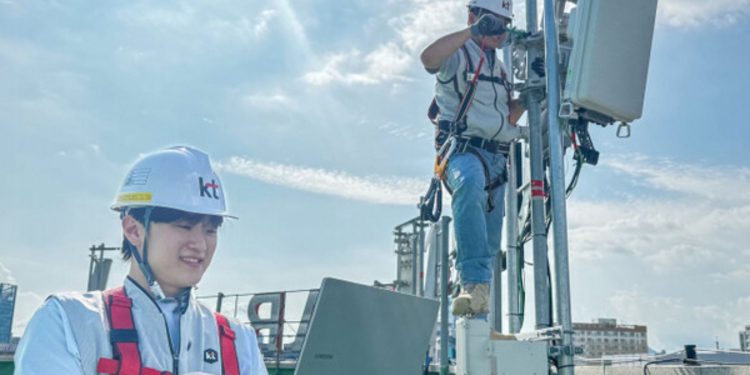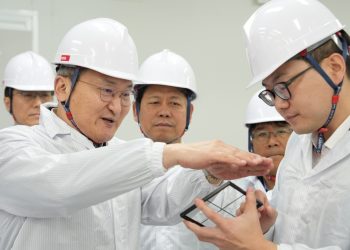KT Corporation has kicked off South Korea’s first trial of artificial intelligence–powered radio access network (AI-RAN) technology on a live 5G network. The pilot is taking place in Naju, South Jeolla Province, using Nokia’s latest AirScale base stations, which are also deployed by operators such as Japan’s SoftBank. With this move, KT becomes the first telecom operator in the country to test how AI can enhance real-world 5G performance.
The AI-RAN system utilizes machine learning to analyze network traffic in real-time, enabling it to optimize connections, reduce delays, and enhance overall capacity. Features such as AI-driven channel estimation and multi-user MIMO are designed to reduce data loss and deliver faster, more stable services. The technology is considered an important building block for future 6G networks, where intelligent automation will play a critical role in managing increasingly complex data demands.
The ongoing trial focuses on two core AI functions: channel estimation and multi-user MIMO (MU-MIMO). Traditionally, radio signals were calculated through mathematical models, but these often struggled in challenging environments like dense urban areas or mountainous terrain. By applying machine learning, KT’s system can interpret complex signal behaviors more accurately, reducing errors and cutting data loss.
The second feature, MU-MIMO, allows a single base station to send data streams to multiple users at the same time on the same frequency band. When enhanced with AI, the system can instantly analyze device signals and traffic status, grouping users in ways that minimize interference. This results in higher capacity, more stable connections, and better speeds for end users, even in crowded areas.
To support these functions, the pilot relies on Nokia’s AirScale base stations, which come equipped with embedded AI processors. These specialized engines can monitor radio conditions and traffic patterns in real time, automatically adjusting network resources as demand shifts. According to KT, the insights from this deployment will guide the next steps in scaling AI-RAN technology into broader commercial use.
KT executives stress that AI-RAN is not only about improving today’s 5G performance but also about preparing for the 6G era. As future wireless networks become more complex, the ability to manage vast amounts of traffic dynamically will be critical. “AI-RAN is an essential technology that enhances customer experience today while laying the foundation for 6G,” said Kwon Hye-jin, head of KT’s network strategy division.
The initiative also positions KT alongside other global telecom leaders experimenting with AI in their networks. Japan’s SoftBank, for example, has been testing similar AI-based channel estimation using large-scale data models. These advancements highlight how major carriers in Asia are racing to set the pace for next-generation communications while balancing the heavy costs of existing 5G rollouts.
Beyond domestic trials, KT is broadening its AI ambitions through international partnerships. The company recently signed an agreement with Vietnam’s Viettel Group to collaborate on AI development across Southeast Asia. The deal covers areas such as building a Vietnamese AI language model, developing industry-specific platforms, strengthening cybersecurity against threats like deepfakes, and nurturing AI talent through a planned Global AX Innovation Center.
By spearheading AI-RAN trials and pursuing cross-border collaborations, KT aims to reinforce its role as a technological leader in both Korea and the wider region. If successful, the company’s efforts could not only boost network quality for today’s 5G users but also accelerate the transition toward more intelligent, adaptive, and resilient networks in the 6G era.
Image credits: KT







